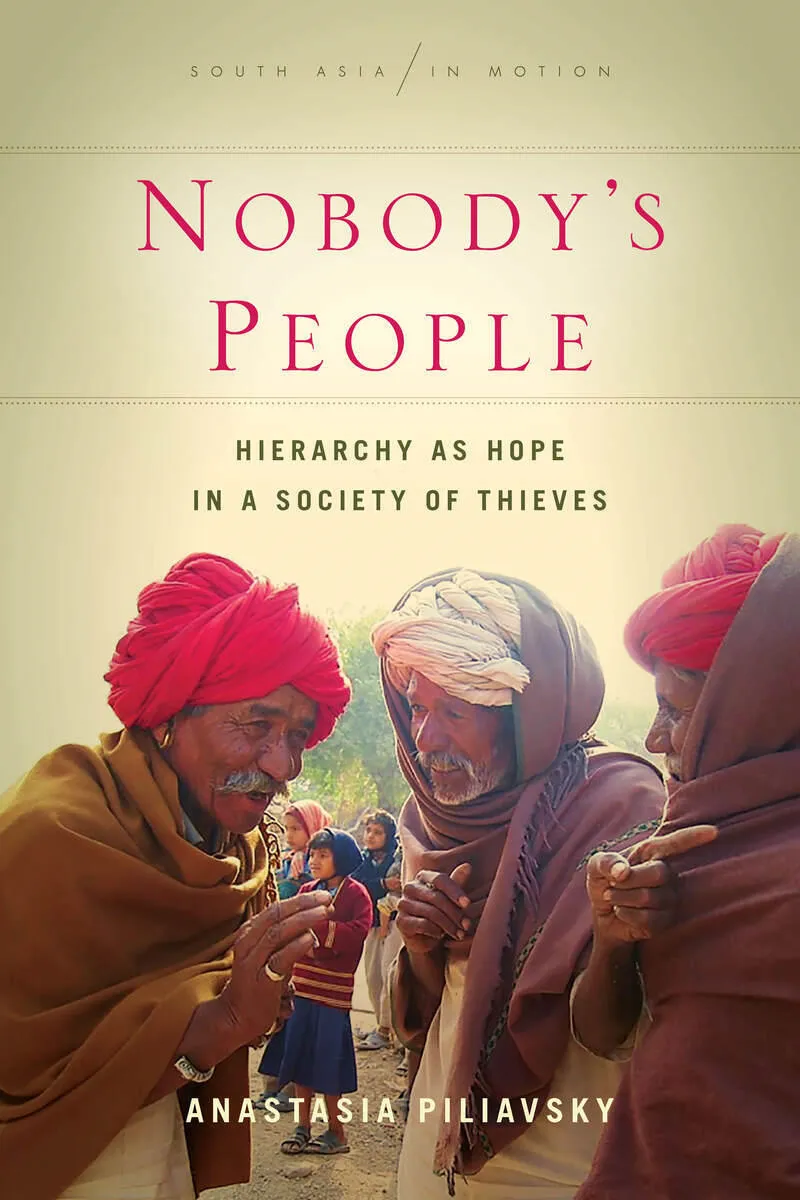Please note: this event has passed
Book Description
What if we could imagine hierarchy not as a social ill, but as a source of social hope? Taking us into a "caste of thieves" in northern India, Nobody's People depicts hierarchy as a normative idiom through which people imagine better lives and pursue social ambitions. Failing to find a place inside hierarchic relations, the book's heroes are "nobody's people": perceived as worthless, disposable and so open to being murdered with no regret or remorse. Following their journey between death and hope, we learn to perceive vertical, non-equal relations as a social good, not only in rural Rajasthan, but also in much of the world—including settings stridently committed to equality. Challenging egalo-normative commitments, Anastasia Piliavsky asks scholars across the disciplines to recognize hierarchy as a major intellectual resource.
Author Brief
Dr Anastasia Piliavsky is a social anthropologist who specialises on India’s democratic politics, political corruption and crime, and the role of vernacular values, especially the hierarchical, in India’s politics and otherwise social life.
She has written about crime, policing and corruption in India, about secrecy and the public sphere, about India’s ‘criminal castes,’ political gangsterism, patronage and democracy, and on social theory and the history of anthropology at large. She is now Principal Investigator of a European Research Council project on ‘India’s politics in its vernaculars’.
Chair
Louise Tillin
Dr Louise Tillin is currently Director, King’s India Institute and Reader in Politics. She is also the programme director of the MSc Global Affairs. Louise’s research interests span federalism, democracy and territorial politics in India, and the history and politics of social policy design and implementation. Louise is a regular commentator on Indian politics in UK, Indian and international media. She is an editor of the journal Regional and Federal Studies, and an editorial board member of Pacific Affairs.
Discussants
Jonathan Spencer FBA, FRSE, FAcSS
Professor Jonathan Spencer is the Regius Professor of South Asian Language, Culture and Society, University of Edinburgh. He has carried out fieldwork in Sri Lanka since the early 1980s, concentrating at first on rural change and local politics, but writing more recently on ethnic conflict, political violence and political non-violence. His current research looks at the history of dissent in Sri Lanka, and at the politics of access to the grid for poor communities in cities in Sri Lanka, India and Pakistan. He is a Fellow of the British Academy, the Royal Society of Edinburgh, and the Academy of Social Sciences.
Dr. Arsalan Khan
Arsalan Khan is an Assistant Professor of Anthropology at the Union College, Schenectady, New York. His research focuses on ritual, gender and ethics, themes that he explores in the context of the Islamic revival in Pakistan. His dissertation ‘Islam, Ritual and the Ethical Life: Dawat in the Tablighi Jamaat in Pakistan’ examines the zealous commitment to a distinct form of face-to-face preaching (dawat) among Pakistani Tablighis, practitioners of the transnational Islamic piety movement, the Tablighi Jamaat. His research speaks to broader questions about the relationship between Islam, secularism and modernity.
Dr. Milinda Banerjee
Milinda is a Lecturer in Modern History at the University of St Andrews. He specialises in History of Modern Political Thought and Political Theory, post-1700. Originally from Calcutta (India), he had earlier researched and taught at Heidelberg University, Presidency University Calcutta, and Ludwig-Maximilians-University Munich. He specialises in the intersections of Indian/South Asian and global intellectual history and global political theory, as well as in political and economic theology.

